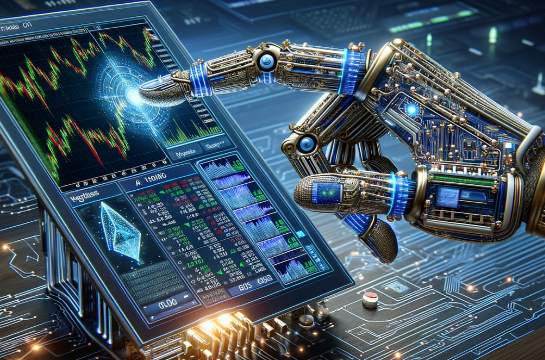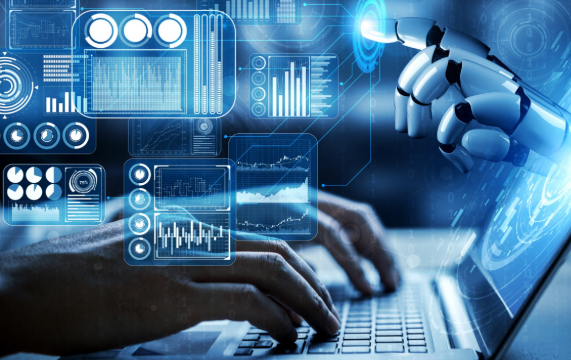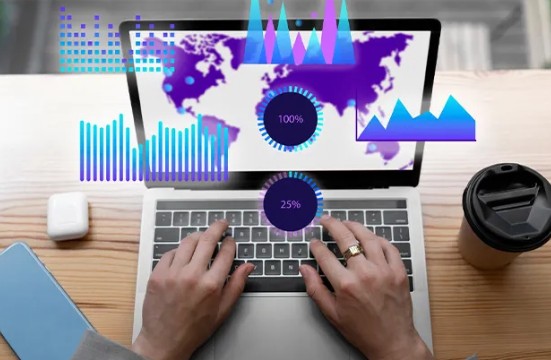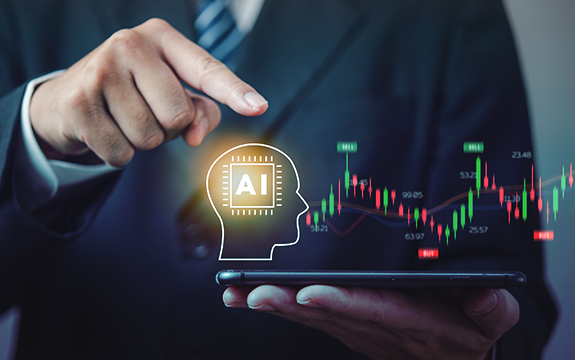The stock market has always been shaped by technological advancements, from the early days of telegraph-based trading to the rise of electronic exchanges. Now, artificial intelligence (AI) is revolutionizing the financial world, ushering in a new era of trading that is faster, smarter, and more efficient than ever before.
The Rise of AI in Financial Markets
AI-driven algorithms have transformed the way traders analyze data, execute trades, and manage risks. With machine learning models processing vast amounts of information in real time, market participants can make more informed decisions. Hedge funds, investment banks, and even retail investors are leveraging AI to gain an edge in a highly competitive landscape.
One of the biggest advantages of AI-powered trading is its ability to detect patterns and trends that may be invisible to human analysts. By analyzing historical price movements, news sentiment, and economic indicators, AI can predict potential market movements with greater accuracy. This predictive capability helps investors optimize their portfolios and reduce exposure to volatile assets.
High-Frequency Trading and Automation
AI has also fueled the rise of high-frequency trading (HFT), where sophisticated algorithms execute thousands of trades within milliseconds. HFT firms rely on AI to identify arbitrage opportunities, capitalize on short-term price fluctuations, and optimize order execution. While this increases market liquidity, it also raises concerns about market manipulation and the potential for flash crashes caused by algorithmic errors.
Beyond HFT, AI is enhancing automation in broader trading strategies. Robo-advisors, powered by AI, provide personalized investment recommendations based on an individual’s financial goals, risk tolerance, and market conditions. This has democratized investing, allowing everyday traders to benefit from AI-driven insights without needing deep financial expertise.
AI’s Role in Risk Management
Risk management is a crucial aspect of trading, and AI is playing a pivotal role in improving it. Financial institutions use AI to monitor market conditions, assess credit risks, and detect fraudulent activities. AI models can analyze millions of transactions to identify unusual patterns that may indicate insider trading or cyber threats.
Additionally, AI-driven sentiment analysis helps traders assess the impact of global events on market trends. By analyzing news articles, social media discussions, and earnings reports, AI can gauge market sentiment and predict potential shifts in investor behavior.
Challenges and Ethical Considerations
While AI offers many benefits, its integration into financial markets is not without challenges. One major concern is the lack of transparency in AI-driven decision-making. Many algorithms operate as “black boxes,” making it difficult for regulators and traders to understand how certain trading decisions are made.
Moreover, AI can sometimes amplify market volatility. Automated systems that react instantly to price changes may exacerbate market swings, leading to unintended consequences. Regulatory bodies are working to establish guidelines to ensure that AI-driven trading remains fair, transparent, and free from manipulation.
The Future of AI in Trading
As AI technology continues to evolve, its role in the stock market will only expand. Quantum computing, for example, has the potential to supercharge AI’s capabilities, allowing for even faster and more accurate predictions. Additionally, advancements in explainable AI (XAI) aim to make AI-driven decisions more transparent and accountable.
For investors and traders, embracing AI is no longer an option—it is a necessity. Those who leverage AI-powered tools effectively will have a significant advantage in navigating the complexities of the stock market.
Conclusion
AI is reshaping the stock market in profound ways, from predictive analytics to automated trading and risk management. While challenges remain, the potential benefits far outweigh the risks. As technology continues to advance, AI will undoubtedly play a central role in shaping the future of trading, creating new opportunities for investors worldwide.





